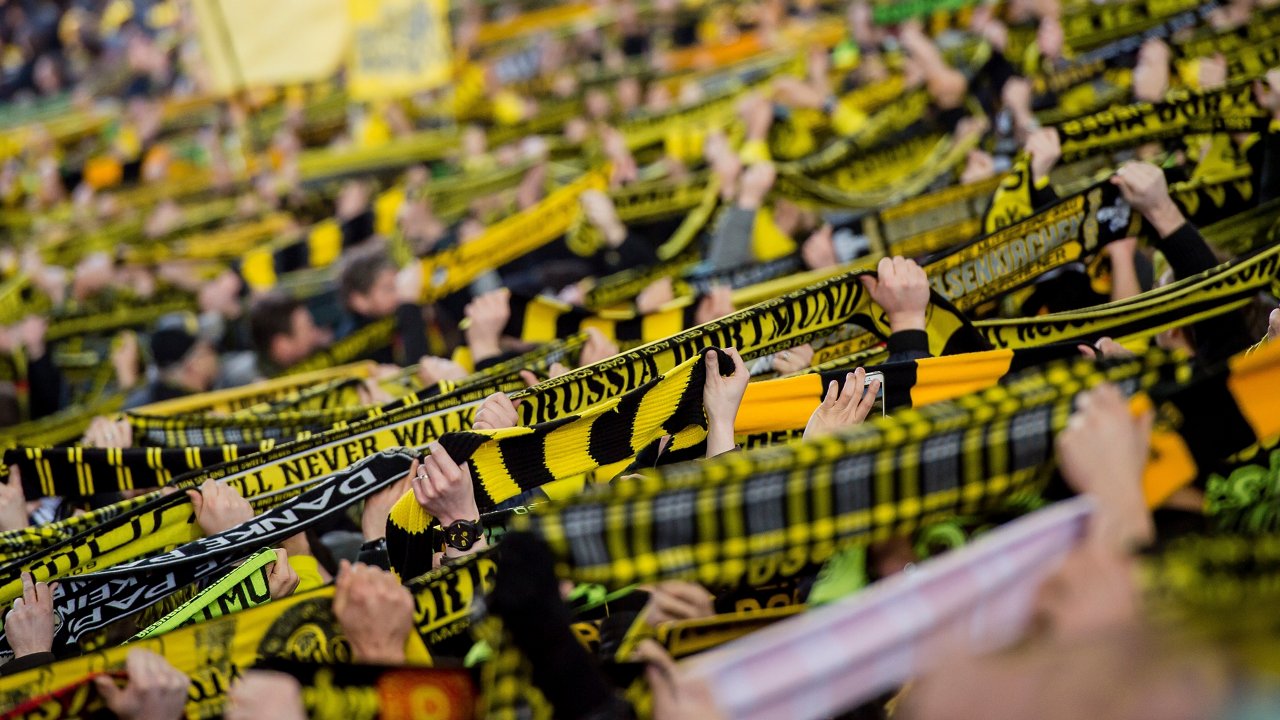Borussia Dortmund First Team
First team matches
runningSeason
{"_path":"https://www.bvb.de/de/en/match-schedule/match.html/.html","placeholder":"","homeTeam":{"id":"6339","team":"Rasenballsport Leipzig","clubName":"Rasenballsport Leipzig","viewName":"Rasenballsport Leipzig","teamLogo":"/content/dam/bvbweb/en/matches/football/profis/teams/6339.svg","bvbDepartment":""},"adversaryTeam":{"id":"157","team":"Borussia Dortmund","clubName":"Borussia Dortmund","viewName":"Borussia Dortmund","teamLogo":"/content/dam/bvbweb/en/matches/football/profis/teams/157.svg","bvbDepartment":"bvbweb:news/sub-category/profis"},"matchDay":"23","displayNameMatchDayDe":"","date":"2026-02-21","time":"18:30:00","venueName":"Red Bull Arena","venueCity":"Leipzig","resultHomeTeam":"2","resultAdversaryTeam":"2","extra":"false","penalty":"false","notScheduled":"false","fanInfoHeadline":"","fanInfoText":"","broadcasterHeadline":"","broadcaster1":"","linkBroadcaster1":"","noFollowBroadcaster1":"","openLinkInNewTabBroadcaster1":"","broadcaster2":"","linkBroadcaster2":"","noFollowBroadcaster2":"","openLinkInNewTabBroadcaster2":"","broadcaster3":"","linkBroadcaster3":"","noFollowBroadcaster3":"","openLinkInNewTabBroadcaster3":"","mediaHeadline1":"","mediaFragment1":"","mediaHeadline2":"","mediaFragment2":"","mediaHeadline3":"","mediaFragment3":"","mediaHeadline4":"","mediaFragment4":"","mediaHeadline5":"","mediaFragment5":"","seoHeading":"","metadescription":"","url":"","id":"2569246","textForCtaDe":"","linkForCtaDe":"","targetLinkDe":"","noFollowLinkDe":"","filterLevelOne":"2025_2026","filterLevelTwo":"football","filterLevelThree":"profis","filterLevelFour":"22","sportDe":"Football","sportEn":"Football","competition":"Bundesliga","experience":"","dataLayer":"{\"ourmatches-50f3925420\":{\"parentId\":\"ourmatches-25ba2b075c\",\"@type\":\"bvbweb/components/ourmatches-card\",\"repo:modifyDate\":\"2025-08-12T14:09:10Z\",\"dc:title\":\"Matchday 23: /content/dam/bvbweb/en/matches/football/profis/teams/rasenballsport_leipzig vs /content/dam/bvbweb/en/matches/football/profis/teams/borussia_dortmund\",\"xdm:linkURL\":\"https://www.bvb.de/de/en/match-schedule/match.html/content/dam/bvbweb/en/matches/football/profis/2025_2026/22/2569246_23_rasenballsportleipzig-borussiadortmund.html? matchDay=23&teamandcompetition=Bundesliga\"}}"}
{"_path":"https://www.bvb.de/de/en/match-schedule/match.html/.html","placeholder":"","homeTeam":{"id":"456","team":"Atalanta","clubName":"Atalanta","viewName":"Atalanta","teamLogo":"/content/dam/bvbweb/en/matches/football/profis/teams/456.svg","bvbDepartment":""},"adversaryTeam":{"id":"157","team":"Borussia Dortmund","clubName":"Borussia Dortmund","viewName":"Borussia Dortmund","teamLogo":"/content/dam/bvbweb/en/matches/football/profis/teams/157.svg","bvbDepartment":"bvbweb:news/sub-category/profis"},"matchDay":"10","displayNameMatchDayDe":"","date":"2026-02-25","time":"18:45:00","venueName":"New Balance Arena","venueCity":"","resultHomeTeam":"","resultAdversaryTeam":"","extra":"false","penalty":"false","notScheduled":"false","fanInfoHeadline":"","fanInfoText":"","broadcasterHeadline":"","broadcaster1":"","linkBroadcaster1":"","noFollowBroadcaster1":"","openLinkInNewTabBroadcaster1":"","broadcaster2":"","linkBroadcaster2":"","noFollowBroadcaster2":"","openLinkInNewTabBroadcaster2":"","broadcaster3":"","linkBroadcaster3":"","noFollowBroadcaster3":"","openLinkInNewTabBroadcaster3":"","mediaHeadline1":"","mediaFragment1":"","mediaHeadline2":"","mediaFragment2":"","mediaHeadline3":"","mediaFragment3":"","mediaHeadline4":"","mediaFragment4":"","mediaHeadline5":"","mediaFragment5":"","seoHeading":"","metadescription":"","url":"","id":"2625085","textForCtaDe":"","linkForCtaDe":"","targetLinkDe":"","noFollowLinkDe":"","filterLevelOne":"2025_2026","filterLevelTwo":"football","filterLevelThree":"profis","filterLevelFour":"5","sportDe":"Football","sportEn":"Football","competition":"UEFA Champions League","experience":"","dataLayer":"{\"ourmatches-2c1df8b714\":{\"parentId\":\"ourmatches-25ba2b075c\",\"@type\":\"bvbweb/components/ourmatches-card\",\"repo:modifyDate\":\"2025-08-12T14:09:10Z\",\"dc:title\":\"Matchday 10: /content/dam/bvbweb/en/matches/football/profis/teams/atalanta vs /content/dam/bvbweb/en/matches/football/profis/teams/borussia_dortmund\",\"xdm:linkURL\":\"https://www.bvb.de/de/en/match-schedule/match.html/content/dam/bvbweb/en/matches/football/profis/2025_2026/5/2625085_10_atalanta-borussiadortmund.html? matchDay=10&teamandcompetition=UEFA Champions League\"}}"}
{"_path":"https://www.bvb.de/de/en/match-schedule/match.html/.html","placeholder":"","homeTeam":{"id":"157","team":"Borussia Dortmund","clubName":"Borussia Dortmund","viewName":"Borussia Dortmund","teamLogo":"/content/dam/bvbweb/en/matches/football/profis/teams/157.svg","bvbDepartment":"bvbweb:news/sub-category/profis"},"adversaryTeam":{"id":"156","team":"Bayern München","clubName":"Bayern München","viewName":"Bayern München","teamLogo":"/content/dam/bvbweb/en/matches/football/profis/teams/156.svg","bvbDepartment":""},"matchDay":"24","displayNameMatchDayDe":"","date":"2026-02-28","time":"18:30:00","venueName":"SIGNAL IDUNA PARK","venueCity":"Dortmund","resultHomeTeam":"","resultAdversaryTeam":"","extra":"false","penalty":"false","notScheduled":"false","fanInfoHeadline":"","fanInfoText":"","broadcasterHeadline":"","broadcaster1":"","linkBroadcaster1":"","noFollowBroadcaster1":"","openLinkInNewTabBroadcaster1":"","broadcaster2":"","linkBroadcaster2":"","noFollowBroadcaster2":"","openLinkInNewTabBroadcaster2":"","broadcaster3":"","linkBroadcaster3":"","noFollowBroadcaster3":"","openLinkInNewTabBroadcaster3":"","mediaHeadline1":"","mediaFragment1":"","mediaHeadline2":"","mediaFragment2":"","mediaHeadline3":"","mediaFragment3":"","mediaHeadline4":"","mediaFragment4":"","mediaHeadline5":"","mediaFragment5":"","seoHeading":"","metadescription":"","url":"","id":"2569254","textForCtaDe":"","linkForCtaDe":"","targetLinkDe":"","noFollowLinkDe":"","filterLevelOne":"2025_2026","filterLevelTwo":"football","filterLevelThree":"profis","filterLevelFour":"22","sportDe":"Football","sportEn":"Football","competition":"Bundesliga","experience":"","dataLayer":"{\"ourmatches-e7a109bfbc\":{\"parentId\":\"ourmatches-25ba2b075c\",\"@type\":\"bvbweb/components/ourmatches-card\",\"repo:modifyDate\":\"2025-08-12T14:09:10Z\",\"dc:title\":\"Matchday 24: /content/dam/bvbweb/en/matches/football/profis/teams/borussia_dortmund vs /content/dam/bvbweb/en/matches/football/profis/teams/bayern_muenchen\",\"xdm:linkURL\":\"https://www.bvb.de/de/en/match-schedule/match.html/content/dam/bvbweb/en/matches/football/profis/2025_2026/22/2569254_24_borussiadortmund-bayernmuenchen.html? matchDay=24&teamandcompetition=Bundesliga\"}}"}
First team news
The BVB professional squad
Here is an overview of the current BVB squad, the team that lives the black and yellow tradition on the pitch week after week. The page offers you a guide to the player profiles and the latest developments in the BVB squad.
BVB squad in action: Our black and yellows
Here you get an exclusive insight into the squad that represents BVB. Find out more about the players' stories and their performances.

